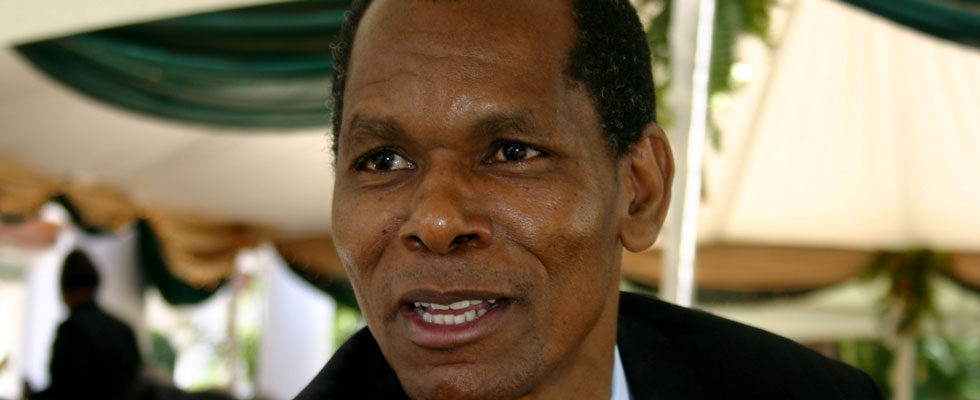
The problem of veld fires in Zimbabwe has reached alarming proportions and as we enter the dry season, it is of paramount importance that everyone plays a role in arresting the situation.
Veld fires are blazes that get out of control and become wild, in the process destroying extensive tracts of forests, grasslands, animals, people and their property.

Although fire has for a long time played a positive role in the vegetation structure and composition, as well as helping recycle nutrients contained in old and dead trees, there is concern that the frequency, extent and pattern of burning, is increasing to unprecedented levels due to human activities.
Statutory Instrument 7 of 2007 in the Environmental Management Act (CAP 20:27) says… “no person is allowed to light a fire outside residential and commercial premises during the period 31 July to 31 October of each year.”
But people are paying no heed to the call.
While most of the veld fires that have been recorded in previous years could have been avoided, some people have been negligent.
Statistics show that human beings account for 95% of forest and veld (Savannah) fires across the globe. In 2002, 350 million hectares of land were burnt worldwide, destroying plantations, crops and pastures.
In Zimbabwe, it is now commonly agreed that veld fires are a significant threat to national economic recovery plans, as they are destroying not only pastures necessary for the restocking exercise, but also foreign currency generation plantations.
- Chamisa under fire over US$120K donation
- Mavhunga puts DeMbare into Chibuku quarterfinals
- Pension funds bet on Cabora Bassa oilfields
- Councils defy govt fire tender directive
Keep Reading
Food security has been compromised as the last few years have seen fires burning wheat and maize fields, among other valuables.
Fires tend to have a devastating impact on forest vertebrates and invertebrates by not only killing them but also leading to long-term indirect effects such as stress and loss of habitat, territories, shelter and food.
Veld fires result in the loss of key organisms in forest ecosystems, fruit-eating birds, pollinators, decomposers, amphibians and reptiles resulting in an overall decline in these species.
For example, the loss of forest food products during the dry season by animals such as monkeys and baboons has resulted in these animals migrating to other areas or invading agricultural crops and destroying young pine plantations in Zimbabwe.
Although causes of veld fires can be natural, human activities such as reckless throwing away of burning items like cigarettes, matches or hunters who use fire in the process of hunting animals, are the main causes.
Other culprits can be those who deliberately light fires to eliminate what they view as excessive vegetation. Throwing away empty bottles in the environment can be also dangerous because such bottles can become hot during hot temperatures and ignite the grass and vegetation. People should learn to be responsible: EMA

Education and publicity manager for the Environmental Management Agency (EMA), Steady Kangata, said as long as people have the right attitude, are not negligent and are vigilant, veld fires can be avoided. “It has to do with attitude. The causes of veld fires can be avoided. For example, improper disposal of ashes leads to the burning of bushes.
“People should just avoid negligence. We cannot speak of natural causes because they are very rare in this country.
“We are urging the community to be very careful in avoiding the occurrences of veld fires,” said Kangata.
The deputy general manager of Forestry Commission, Abednego Marufu said the law should take its course and come down heavily on those who cause veld fires because a lot is being done to educate them but no change is being seen.
“We have discovered that after all our efforts to educate people on the dangers of bush fires, nothing is changing,” said Marufu.
“We are dealing with hardcore offenders who believe that putting bushes on fire is their way of life. Putting such people in jail is the only possible solution.”
Environment and Natural Resources Management minister Francis Nhema has said traditional chiefs have also been tasked with prosecuting individuals who start fires that are undermining the country’s on-going cattle restocking programme.
“Systematic ecological and localised environmental degradation is becoming highly prominent as a result of uncontrolled fires.”
“This lowers the natural resilience of ecosystems to disaster impact and delays recovery. Veld fires also destroy grazing land,” Nhema said during the 2012 National Fire Week launch.
With the dry season upon us once again; let us make sure we keep our environment safe.
Unnecessary burning of the environment should be avoided as it has devastating effects. The table provided above was released by EMA in 2012 to show the ravaging effects of veld fires since 2009.










